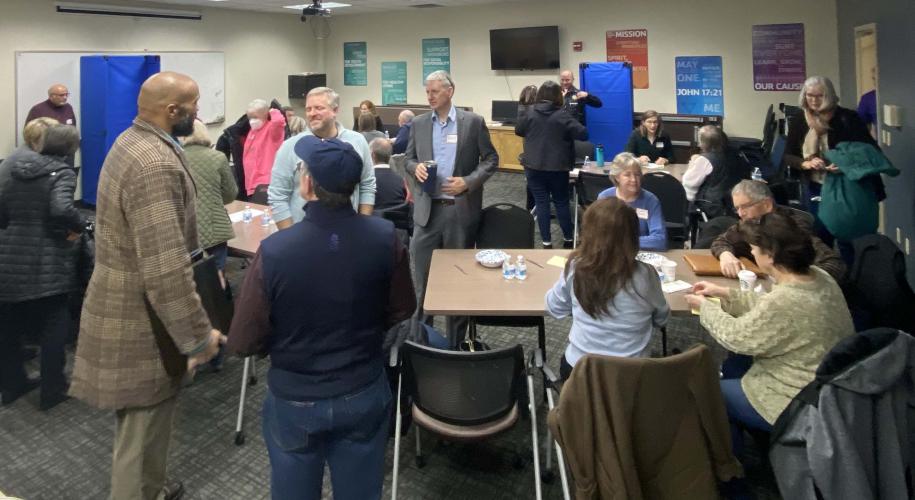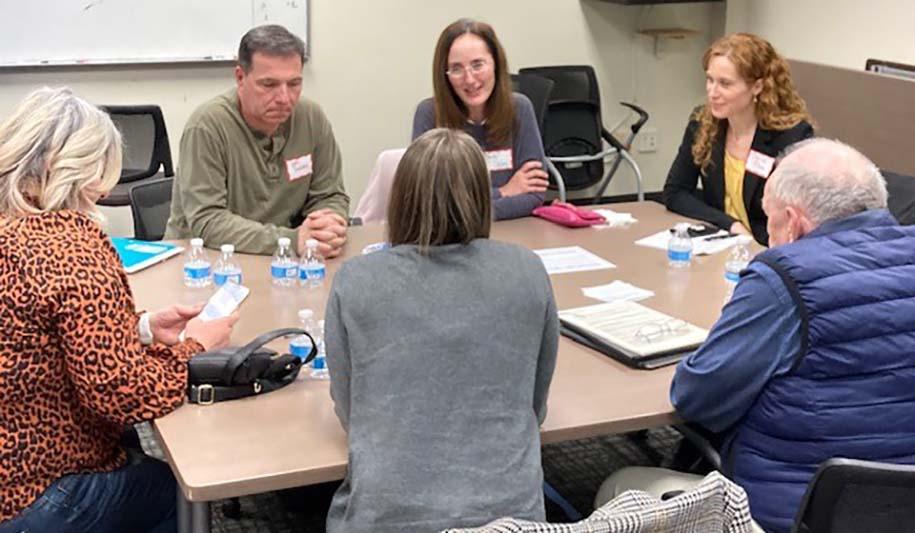
Breadcrumb
- Essential Partners
- Our Impact
- News and Notes
- Impact Snapshot: Paul Schneider, YMCA’s Bridge of Hope
Impact Snapshot: Paul Schneider, YMCA’s Bridge of Hope

“I was frustrated before and I now have hope. We can actually engage folks in a broader way.”
Over the past year, Essential Partners has supported Bridge of Hope, an initiative of the YMCA of Pierce and Kitsap Counties (WA) to bring community members together for healthy, constructive dialogue about the issues that matter—and that divide them.
The initiative’s purpose is “to gather people within Pierce and Kitsap Counties who desire to increase civility, understanding, hope, and trust by participating in meaningful civil dialogue around complex issues with those of differing experience and perspectives.”
Paul Schneider, a retired physician and one of the community leaders behind Bridge of Hope, participated in a Reflective Structured Dialogue (RSD) training with Essential Partners.
“My initial response to the Reflective Structured Dialogue process was skeptical,” he said. “I wanted to see more free form-discussion and RSD felt restrictive. After seeing how it works, though, I’ve had a significant change in opinion. It works really well. I’m a big fan now.”

“We’ve run six or seven dialogues, including two dialogues concerning homelessness. We had great participation. Some of the participants were city and county government leaders. They liked the format of the dialogue and wanted to know what’s next.”
The initiative has made progress toward their goals, leading dialogues about pressing issues in Pierce and Kitsap Counties. “We’re being deliberate in how we’re moving forward. It’s going well. We’ve run six or seven dialogues, including two dialogues concerning homelessness. We had great participation. Some of the participants were city and county government leaders. They liked the format of the dialogue and wanted to know what’s next.”
“My big vision is for all of these groups from government and non-government agencies to come together. There are at least a dozen organizations involved in our local homelessness problem. They’re talking with each other but don’t have community involvement. As we move forward I’d like to get community involvement. From there, the next steps could be decided.”
Schneider reflected on the changes that he has seen in his own life as well. “I haven’t been good at listening to people in the past,” he said. “I knew I was right and I let people know. I can say that there's been some change though. I have a friend who’s on the other end of the spectrum from me. He and I are finally getting together to start talking about these polarized issues and there has been a real change.”
“It’s important to address divisiveness,” Schneider said. “I’m deeply concerned about this. My attitude hasn’t changed, but I was frustrated before and I now have hope. We can actually engage folks in a broader way.”
